1998 Student Kidnapping is Human Rights Violation
Prabowo Subianto is hoping to erase his sins in relation to the 1998 kidnappings. Gross human rights violations will not be a priority.
maaf email atau password anda salah
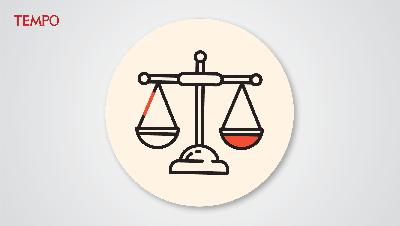
Prabowo Subianto is hoping to erase his sins in relation to the 1998 kidnappings. Gross human rights violations will not be a priority.
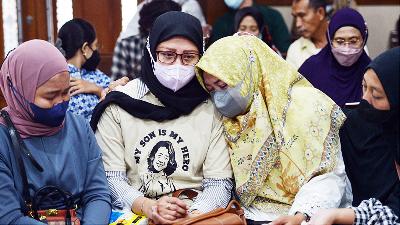
Families of children suffering from acute kidney failure still seek justice. The number of children undergoing dialysis is reportedly on the rise.

The government fails to pay compensation to the families of children suffering from acute kidney injury. It ends up in court.
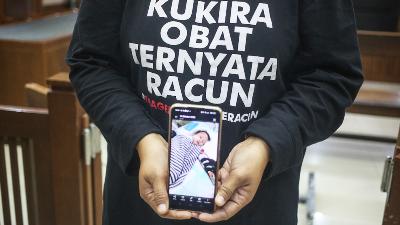
Families of victims of acute kidney injury are anticipating compensation from the government. It is the extended impact of poor coordination of government institutions.
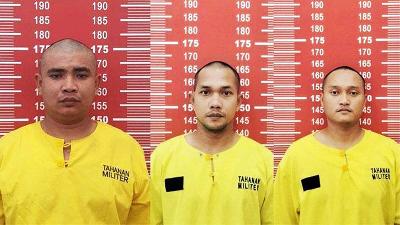
A Presidential Security Detail (Paspampres) member and two TNI members kidnapped and tortured a cosmetic trader to death. There were presumably eight other victims.

Kidney trading on the black market is on the rise. The government should pay compensation to donors.
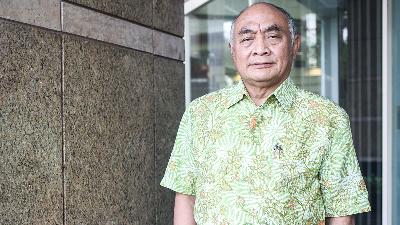
The government faces difficulties accommodating kidney donors and recipients. The need for kidney donors is high, but the supply is very limited.

A kidney donor says he is having difficulty finding a job. He sold a kidney because of financial troubles.
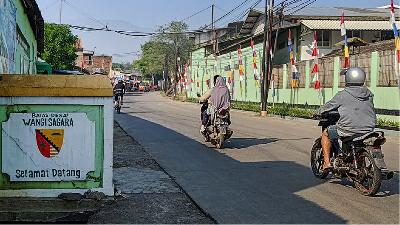
The lives of kidney donors get worse after having the operation. This does not diminish interest among potential kidney donors.
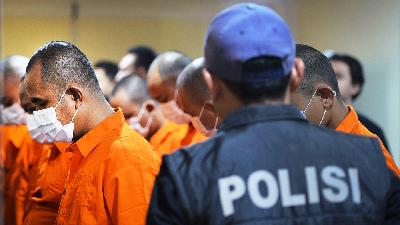
The police exposes Indonesian kidney trafficking network in Cambodia. The victims are enticed through social media.
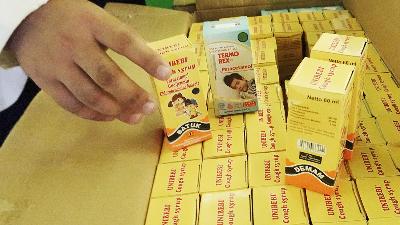
BPOM is criticized for its slow investigation into the ingredients of syrup medicines responsible for acute kidney injury. Some see the agency as protecting the pharmaceutical industry.
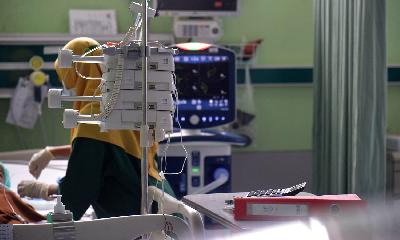
Cough syrups are blamed for acute kidney injury in hundreds of children. Health ministry’s surveillance team is slow in collecting patient data while the National Food and Drug Authority (BPOM) stands accused of negligence.
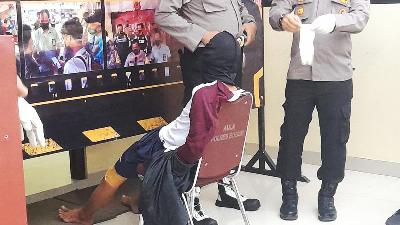
A recidivist kidnapped 13 children in Bogor, South Tangerang, and Jakarta by masquerading as a police officer. He once claimed to be a terrorist convict involved in the Sarinah bombing.

It is now two minutes to midnight. Not long to Doomsday.

Thirty-year-old Jaya Kurnia, not his real name, recently felt a drastic change in his body. He is not as healthy as he used to be. He gets tired more easily and quickly. Routine physical activity can make him short of breath, as if he had just been running. "If I knew it would be like this, maybe I wouldn't have been willing to do it," said Jaya, interviewed at the Ibun district police headquarters last week.
Jaya's body started to act up after he underwent an operation to remove a kidney last December. Jaya can no longer drive a vehicle all day like he did before the operation. For years, he worked full-time as a bus driver on the Majalaya-Tegallega route in Bandung.

The discovery of a syndicate trading illegally in human kidneys last month is actually nothing new. The perpetrators themselves admit that they have been in the business since 2008, with preliminary police investigations putting the number of trafficking 'victims' at 15. But that estimate is far below what is really going on.
Five so-called 'transactions' a year alone suggests the real figure is closer to 35 transactions over the past seven years, each costing Rp300-400 million. It is also hard to believe that the shadowy business has been confined to only one gang.

Last week's attack in the middle of Jakarta should be seen as a wakeup call for the authorities. We may have been lulled by the six-year hiatus of bombings that were a feature between 2000 and 2009. In reality, however, the signs were all there to see. The comings and goings of radical Islamic elements in and out of Syria, their increasingly assertive campaigns on social media and most recently the discovery of a plot to carry out attacks on Christmas and New Year. The fact that only two fatalities resulted from last week's terror attack should also not be a reason for complacence. Responding to written questions posed by Tempo English, Sidney Jones, executive director of the Institute for Policy Analysis of Conflict and longtime student of radical Islam in the region, believes that, "We could be in for a period of more intensive terrorist activity."

Komnas HAM concludes that the 1997-1998 kidnapping case was a severe case of human rights abuse. The AGO awaits a political decision from the DPR.

Abu Jihad has gone missing in Ambon. The kidnappers have demanded a ransom, while the police are questioning 15 witnesses.
Independent journalism needs public support. By subscribing to Tempo, you will contribute to our ongoing efforts to produce accurate, in-depth and reliable information. We believe that you and everyone else can make all the right decisions if you receive correct and complete information. For this reason, since its establishment on March 6, 1971, Tempo has been and will always be committed to hard-hitting investigative journalism. For the public and the Republic.